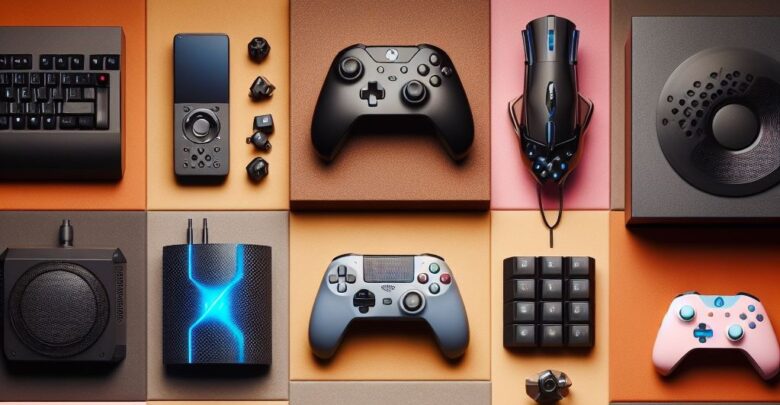The future of video gaming is poised to be incredibly exciting, with advancements in cutting-edge consoles and peripherals promising to revolutionize the way we play and experience games. Here are some key trends and innovations to look out for:
1. Next-Generation Consoles
- Enhanced Graphics and Performance: The latest consoles, such as the PlayStation 5 and Xbox Series X, already boast impressive hardware capabilities, and future iterations are expected to push these boundaries even further, with 8K resolution support and higher frame rates.
- Ray Tracing and Advanced Lighting: Ray tracing technology, which provides realistic lighting and reflections, is becoming more prevalent and will continue to enhance visual realism.
- Faster Load Times: The integration of advanced SSD technology will further reduce load times, making gaming more seamless and immersive.
2. Virtual Reality (VR) and Augmented Reality (AR)
- Improved VR Headsets: Future VR headsets are expected to offer higher resolutions, wider fields of view, and more comfortable designs. Standalone VR headsets like the Oculus Quest series will continue to evolve, providing high-quality VR experiences without the need for a PC or console.
- AR Gaming: Augmented reality is set to enhance gaming by overlaying digital elements in the real world, as seen with games like Pokémon Go. Future AR glasses and devices will offer more sophisticated and interactive experiences.
3. Cloud Gaming
- Streaming Services: Services like Google Stadia, NVIDIA GeForce Now, and Microsoft xCloud are pioneering the shift towards cloud gaming, allowing players to stream high-quality games on various devices without needing powerful hardware.
- 5G Connectivity: The rollout of 5G networks will significantly reduce latency and improve the performance of cloud gaming, making it more accessible and enjoyable.
4. AI and Machine Learning
- Smarter NPCs: Advances in AI will lead to more intelligent and responsive non-player characters (NPCs), providing more challenging and realistic gameplay experiences.
- Procedural Generation: AI-driven procedural generation will create vast, dynamic game worlds and unique content that evolves based on player actions.
5. Advanced Peripherals
- Haptic Feedback and Adaptive Triggers: Peripherals like the PlayStation 5’s DualSense controller, which features advanced haptic feedback and adaptive triggers, will become more common, providing a more tactile and immersive gaming experience.
- Wearable Tech: Devices such as haptic suits and gloves will offer new ways to interact with virtual environments, enhancing immersion.
- Eye-Tracking and Gesture Control: Future peripherals may include eye-tracking and gesture control technology, allowing for more intuitive and natural interactions within games.
6. Cross-Platform Play and Unified Ecosystems
- Cross-Platform Compatibility: The trend towards cross-platform play will continue, allowing gamers to play with friends across different consoles and devices.
- Unified Gaming Ecosystems: Companies like Microsoft are creating unified ecosystems that allow for seamless transition between PC, console, and mobile gaming, providing a cohesive gaming experience across multiple platforms.
7. Social and Interactive Gaming
- Expanded Social Features: Future gaming platforms will integrate more robust social features, such as advanced voice recognition, real-time translation, and more immersive multiplayer experiences.
- Interactive Streaming: Platforms like Twitch and YouTube Gaming will continue to evolve, offering more interactive features that allow streamers and viewers to engage in real-time, influencing gameplay and outcomes.
8. Sustainable Gaming
- Eco-Friendly Hardware: Companies are increasingly focusing on sustainability, with future consoles and peripherals expected to be more energy-efficient and made from environmentally friendly materials.
- Digital Distribution: The shift towards digital game distribution will reduce the environmental impact associated with physical media production and shipping.
9. Indie Game Development
- Empowered Developers: Advances in game development tools and platforms will continue to empower indie developers, leading to a more diverse range of innovative and unique games.
- Crowdfunding and Early Access: These models will remain popular, allowing developers to gather funding and feedback from the community during the development process.
10. Esports and Competitive Gaming
- Growth of Esports: The esports industry will continue to grow, with more professional leagues, larger prize pools, and increased mainstream recognition.
- Enhanced Spectator Experiences: Innovations in broadcasting and streaming technology will improve the viewing experience for esports fans, with features like real-time statistics, multiple camera angles, and interactive overlays.
The future of video gaming is bright, with cutting-edge consoles and peripherals set to enhance our gaming experiences in ways we can only begin to imagine. Whether through advancements in hardware, software, or connectivity, the next generation of gaming promises to be more immersive, interactive, and accessible than ever before.

